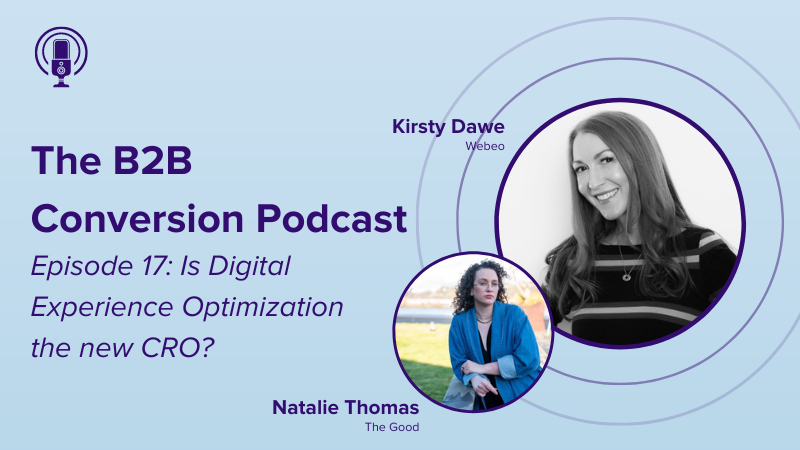In the world of digital marketing, the concept of AB testing has long been praised as a powerful tool for optimizing conversions and enhancing user experience. But when it comes to B2B marketing in 2024, there are rumblings from marketers about whether AB testing is relevant and effective.
We wanted to explore this further through the lens of a B2B website. Firstly let’s start by summarizing what AB testing is.
What is AB Testing?
AB testing, also known as split testing, is a method used to compare two versions of a webpage, email, or other digital assets to determine which one performs better. By randomly showing these variants to different users and analyzing their behavior, marketers can identify which version drives more conversions, such as clicks, sign-ups, or purchases. This data-driven approach enables continuous improvement and optimization.
The Question of Relevance in B2B Marketing
Despite its success in B2C, some B2B marketers remain unconvinced about the applicability of AB testing to their domain. A common sentiment is that B2B sales cycles are longer and more complex, involving multiple decision-makers and interactions. This complexity leads to the perception that AB testing might not yield meaningful results in a B2B context.
According to a recent survey by B2B Marketing Zone, 38% of B2B marketers expressed doubts about the effectiveness of AB testing in their industry. One respondent noted, “B2B sales involve many touchpoints and factors that aren’t easily isolated for testing. AB testing seems too simplistic for our needs.”


B2B Marketing Zone quote
Here are some other valid concerns and challenges that have led to skepticism about its effectiveness in B2B including:
Insufficient Data for Statistical Significance:
B2B websites often experience lower traffic volumes compared to B2C, which can deter some marketers from prioritizing AB testing. The reduced traffic levels in B2B mean that tests may take longer to generate statistically significant results. Without a substantial volume of traffic, it becomes difficult to confidently attribute changes in web conversion to specific test variations.
Poor Test Execution:
A common pitfall in B2B AB testing is the improper execution of tests. Some marketers fail to adopt best practices such as testing one variable at a time, randomizing test groups, formulating clear hypotheses, and meticulously documenting results. These oversights can lead to inconclusive or misleading outcomes, undermining the credibility of AB testing efforts. This isn’t a criticism of B2B marketers. We just need to acknowledge that this is an issue and to adopt best practices and derive solid statistics is time-consuming for a team already stretched with BAU tasks.
Substitution of AB Testing for Research:
The accessibility and simplicity of AB testing tools sometimes tempt marketers to rely solely on testing rather than conducting thorough research and analysis. This shortcut mentality can result in shallow insights and missed opportunities to truly understand customer needs and behaviors when they visit your website.
Focus on Top-of-Funnel Optimization:
A significant challenge with AB testing in the context of B2B marketing is its limited scope in addressing different stages of the B2B sales funnel. Traditional AB testing primarily focuses on optimizing elements at the top of the funnel, such as CTA buttons on landing pages, without considering the broader customer journey and funnel stages specific to B2B.
In B2B sales, the funnel is often complex and involves multiple touchpoints and repeated visits to your website. AB testing that solely targets top-of-funnel optimizations may overlook critical aspects of the buyer’s journey, such as lead nurturing strategies or post-acquisition customer engagement tactics.
This limitation can result in missed opportunities to optimize conversions and customer retention across all stages of the B2B funnel.
Skepticism around AB testing in B2B marketing is understandable. Its suitability is a decision for you to make based on things like business size, target audience, internal resources etc. With regards to your website, the question you need to consider is are you looking to drive overall conversion or increase conversion with our most valuable traffic. Segmentation is limited for B2B AB testing meaning tailoring tests to specific industries, company sizes, or other firmographic criteria can be challenging, potentially resulting in less granular insights.




